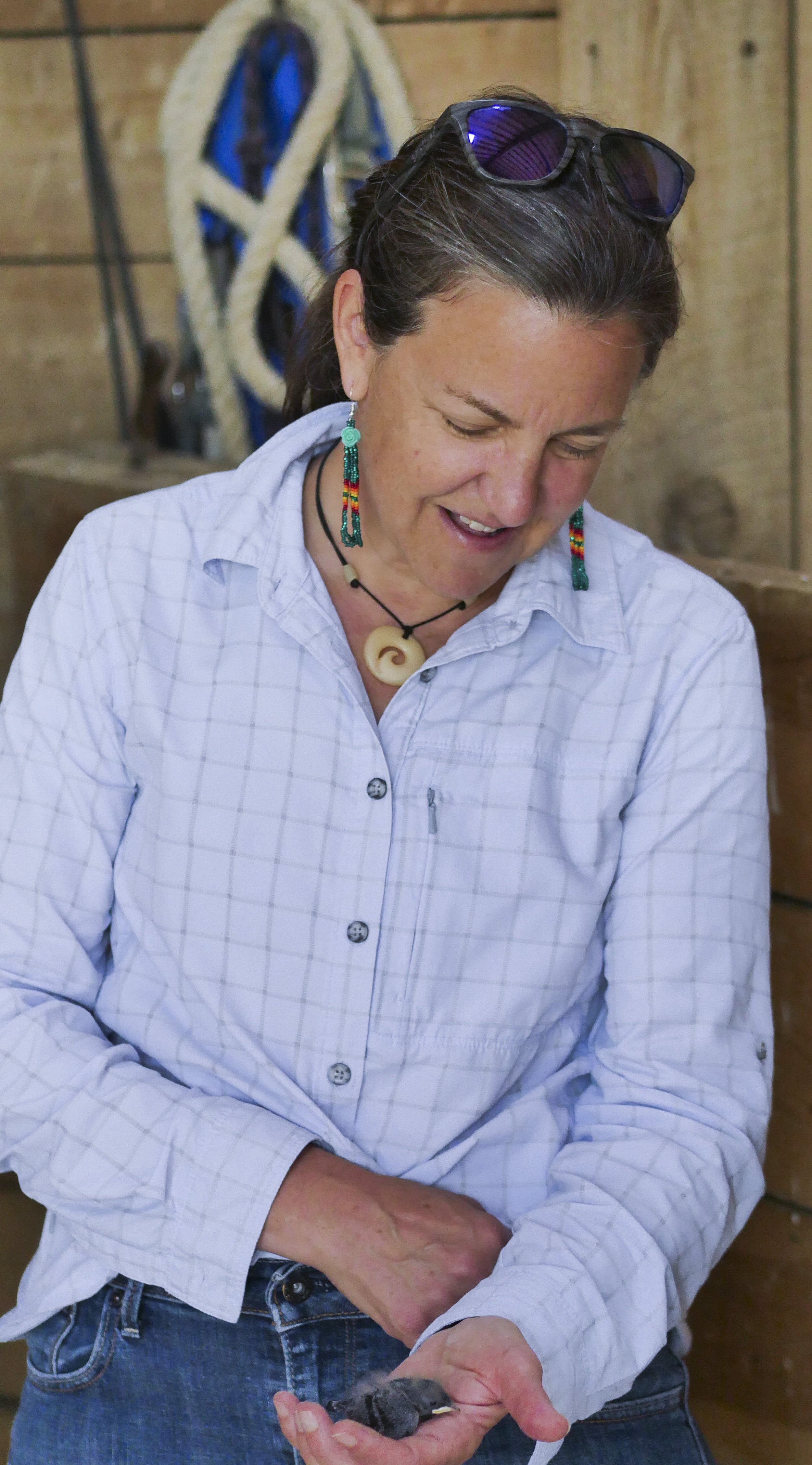Are you captivated by colorful Barn Swallows, with their fast flying and long forked tails, twisting and turning as they catch insects on the wing? Enjoy this Boulder County Audubon program, as University of Colorado-Boulder’s Dr. Rebecca J. Safran describes how humans and barn swallows have evolved together, and how we may continue to evolve on a changing planet.
In-Person Gathering - BCAS welcomes everyone back to in-person programs at the Unitarian Universalist Church of Boulder. Doors open at 7 PM for socializing and the program begins at 7:15. While the church is no longer requiring masks, we encourage you to wear your favorite high-quality mask, and we will provide free surgical masks for anyone who needs one. Please stay home if you feel sick, and watch the program on Zoom!
Online Gathering - The meeting room will open at 7:10, the program starts at 7:15. Questions for the speaker will be taken from the chat feature of the Zoom session.
Click this link to join the Zoom meeting.
Meeting ID: 815 8181 9306
Passcode: 508991
One tap mobile
+17193594580,,81581819306#,,,,*508991# US
+16699006833,,81581819306#,,,,*508991# US (San Jose)
The evolutionary history of one of the most common and widely distributed birds on planet earth is intrinsically tied to that of our own species. When humans migrated out of Africa and began constructing permanent settlements in the Holocene some 10,000 years ago, they established new ecological niches for the animals and plants they domesticated as well as those that expanded alongside humans as they created new habitats for themselves and other living things. The barn swallow is one of those species whose expansion tracks with human settlement. Artifacts from ancient human civilizations portray a love story between humans and barn swallows – these birds were mummified along with their owners in ancient Egyptian burials, are prominent in ancient bronze age and Grecian arts, and today are portrayed all around the world on our postage stamps, tattoos, stories, and poems, and mythologies both old and new. And yet, this story of humans and barn swallows living side by side in the built environment is changing dramatically. Throughout their widespread range, barn swallows are declining.
Barn Swallow feeding nestlings. Photo by Matt Wilkins.
Barn Swallows. Photo by Matt Wilkins.
This talk will explore this story of human and barn swallow expansion and co-settlement – a relationship that has lasted for thousands of years and is now changing abruptly as barn swallows – at home just about anywhere on planet earth – are being brought to the limits of adaptation. The story of the barn swallow is not unlike our own – as there are now places where these birds can no longer thrive, humans too are currently contending with areas rendered uninhabitable due to the effects of climate change, whether it be sea level rise, extreme heat, fire, or flood. What will be our future story of home? Will our longstanding relationship with the barn swallow persist in this new climate?
Dr. Rebecca (Becca) Safran is a Professor of Ecology and Evolutionary Biology at the University of Colorado-Boulder. She is also Founding co-Director of Inside the Greenhouse for creative climate communication, where her focus includes an exploration of humans and birds living side by side in the natural world: https://www.sidebyside.world/ and teaching a science communication class where students translate climate change science into creative films.
Dr. Rebecca J. Safran with Barn Swallow nestling. Photo by Patrick Campbell.
As an evolutionary biologist, Becca’s interests are focused on the formation of new species with a special focus on one of the most widespread birds on planet earth: the barn swallow. Her research group works on a variety of projects related to the physiological, behavioral and ecological and climate factors that influence genomic divergence among closely related populations of barn swallows around the world, from villages above the Tibetan Plateau in China to barns and bridges near the University of Colorado in Boulder. Funded by the National Science Foundation through several grants including CAREER award, Becca's research has appeared in Science, Current Biology, and Trends in Ecology and Evolution and many other publications related to evolutionary ecology and genetics.
Becca is passionate about social justice and belonging in Science, Technology, Engineering and Mathematics (STEM), a topic her research group has worked on collaboratively. You can read more about Becca and the Safran Lab here. Becca lives in Boulder Colorado with her husband, Sam, their two boys, and two dogs.



